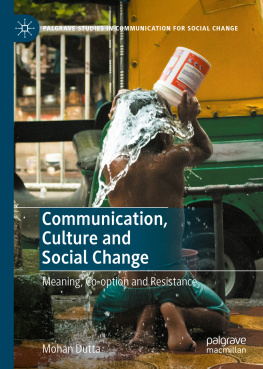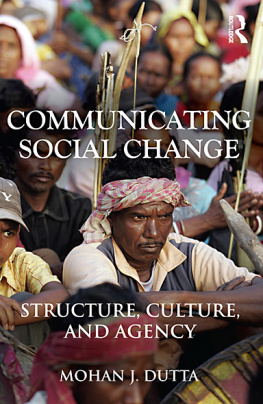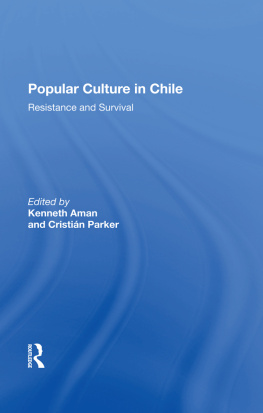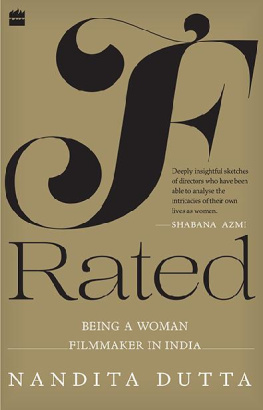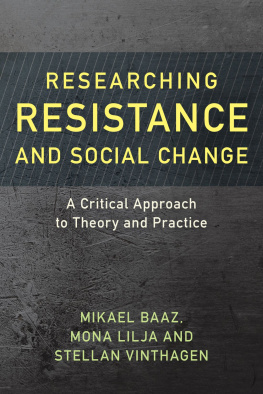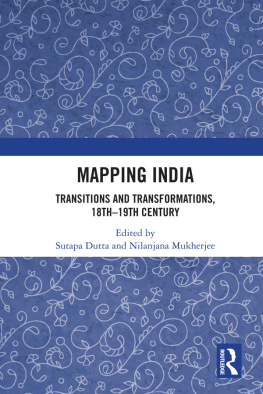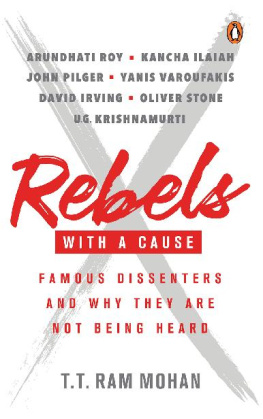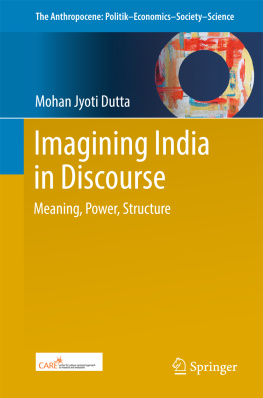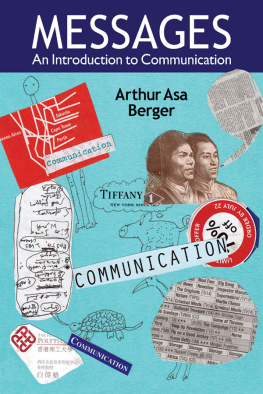Mohan Dutta - Communication, Culture and Social Change: Meaning, Co-option and Resistance
Here you can read online Mohan Dutta - Communication, Culture and Social Change: Meaning, Co-option and Resistance full text of the book (entire story) in english for free. Download pdf and epub, get meaning, cover and reviews about this ebook. year: 2020, publisher: Springer International Publishing, genre: Romance novel. Description of the work, (preface) as well as reviews are available. Best literature library LitArk.com created for fans of good reading and offers a wide selection of genres:
Romance novel
Science fiction
Adventure
Detective
Science
History
Home and family
Prose
Art
Politics
Computer
Non-fiction
Religion
Business
Children
Humor
Choose a favorite category and find really read worthwhile books. Enjoy immersion in the world of imagination, feel the emotions of the characters or learn something new for yourself, make an fascinating discovery.
- Book:Communication, Culture and Social Change: Meaning, Co-option and Resistance
- Author:
- Publisher:Springer International Publishing
- Genre:
- Year:2020
- Rating:3 / 5
- Favourites:Add to favourites
- Your mark:
- 60
- 1
- 2
- 3
- 4
- 5
Communication, Culture and Social Change: Meaning, Co-option and Resistance: summary, description and annotation
We offer to read an annotation, description, summary or preface (depends on what the author of the book "Communication, Culture and Social Change: Meaning, Co-option and Resistance" wrote himself). If you haven't found the necessary information about the book — write in the comments, we will try to find it.
Mohan Dutta: author's other books
Who wrote Communication, Culture and Social Change: Meaning, Co-option and Resistance? Find out the surname, the name of the author of the book and a list of all author's works by series.
Communication, Culture and Social Change: Meaning, Co-option and Resistance — read online for free the complete book (whole text) full work
Below is the text of the book, divided by pages. System saving the place of the last page read, allows you to conveniently read the book "Communication, Culture and Social Change: Meaning, Co-option and Resistance" online for free, without having to search again every time where you left off. Put a bookmark, and you can go to the page where you finished reading at any time.
Font size:
Interval:
Bookmark:
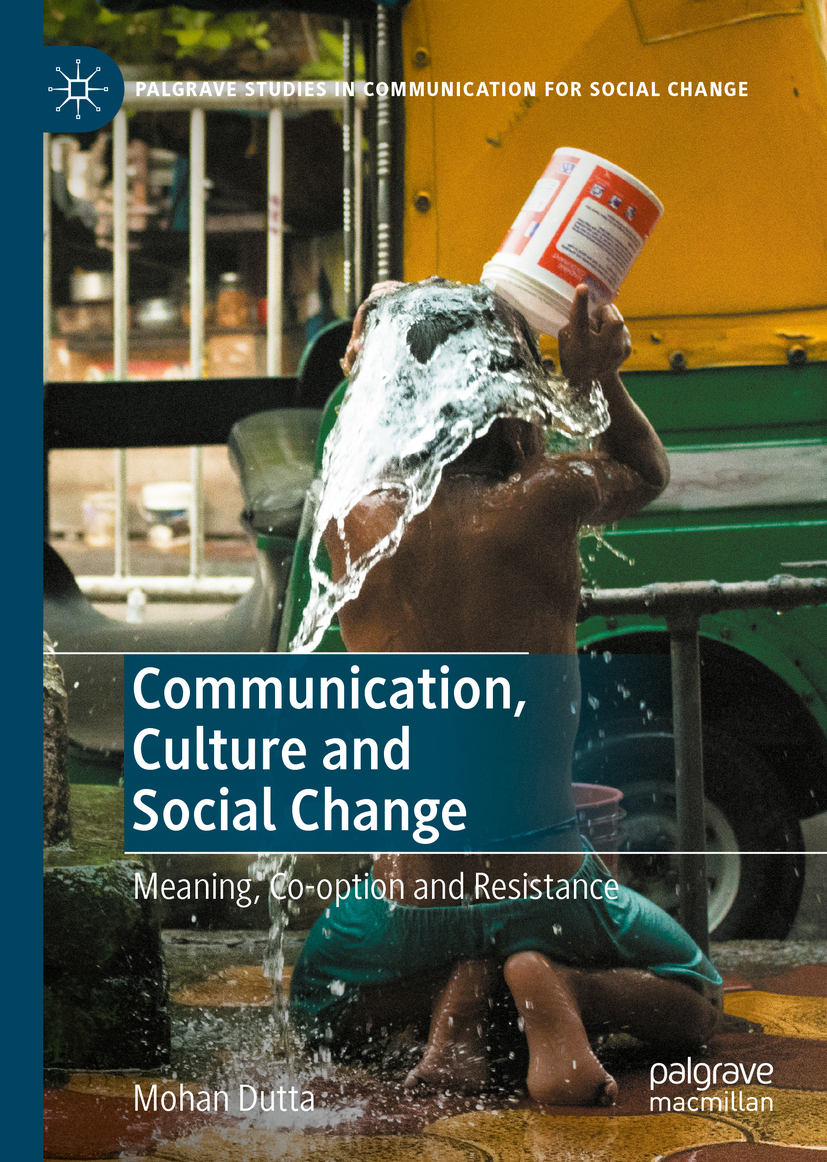
Communication for Social Change (CSC) is a defined field of academic enquiry that is explicitly transdisciplinary and that has been shaped by a variety of theoretical inputs from a variety of traditions, from sociology and development to social movement studies. The leveraging of communication, information and the media in social change is the basis for a global industry that is supported by governments, development aid agencies, foundations, and international and local NGOs. It is also the basis for multiple interventions at grassroots levels, with participatory communication processes and community media making a difference through raising awareness, mobilising communities, strengthening empowerment and contributing to local change. This series on Communication for Social Change intentionally provides the space for critical writings in CSC theory, practice, policy, strategy and methods. It fills a gap in the field by exploring new thinking, institutional critiques and innovative methods. It offers the opportunity for scholars and practitioners to engage with CSC as both an industry and as a local practice, shaped by political economy as much as by local cultural needs. The series explicitly intends to highlight, critique and explore the gaps between ideological promise, institutional performance and realities of practice.
More information about this series at http://www.palgrave.com/gp/series/14642

Cover image: Khandup Sherpa / EyeEm
Cover design: eStudioCalamar
This Palgrave Macmillan imprint is published by the registered company Springer Nature Switzerland AG.
The registered company address is: Gewerbestrasse 11, 6330 Cham, Switzerland
For Ma, Master of Arts (Philosophy), my first teacher, my anchor, my inspiration,
For Debalina, Doctor of Philosophy (Communication), for our journeys of learning together
Places that we travel to, where we locate ourselves, and from where we speak constitute our understandings of our life-worlds. My journey from Kharagpur, a mofussil town that housed the hallowed Indian Institute of Technology created by the Indian Prime Minister Jawaharlal Nehru and nurtured by my great grand-uncle Sir Jnan Chandra Ghosh, its first Director, to the bustling Kolkata in Eastern India, to Fargo, North Dakota, to study Agricultural Engineering and then Communication, to Minneapolis, Minnesota, to study Social Marketing under the guidance of Professor William D. Wells and Ronald Faber at the University of Minnesota, to West Lafayette, Indiana, where I began my journey as Assistant Professor in the Department of Communication at Purdue University, to the National University of Singapore in Singapore, and then to Massey University in Palmerston North, New Zealand, constitutes the various turns I seek to explore in my understanding of the relationship between culture and communication for social change. That how we come to understand a subject and engage with it shaped by our shifting positions is a lesson that continually emerged through these different journeys. Our journeys through different geographies situate us in different positions, both enabling us to see the world in certain ways and, at the same time, limiting the possibilities that we envision.
Social change itself is a dynamic process and any study of change is situated amid our journeys as scholars and practitioners participating in processes of communication for social change. I have found my own conceptual understanding of social change move from a Marxist understanding embedded in the practice of Marxist cultural work as a participant in the Indian Peoples Theater Association (IPTA) to my training in the social-psychological basis of individualized social change in graduate school, to turning to socialist communication for social change processes in current collaborations with trade unions, activists, indigenous rights groups, and political parties. The work of communication intertwined with culture frames the politics underlying social change communication scholarship, embedding the social change processes in relationship to structures.
The nature of culture and its various trajectories in communication for social change are the main topics of this book. My own thinking on culture and its meaning in social change communication has changed, shaped by my many experiences in academia, and, more importantly, in community, activist and academic partnerships across geographic spaces. The work of CARE, negotiating spaces within and outside institutions, has shaped my thinking. Cultural practices can both reify structures and be the very bases for bringing about changes in structures. The understanding of the role of culture and how it plays out are, therefore, the key elements in communication for social change. How culture is conceptualized and then tied to specific forms of communication for social change depict the range of theoretical positions that emerge in the literature.
The book focuses on the role of dominant approach to culture in the context of neoliberal interventions. Culture here is treated as a resource that can be quantified and deployed toward generating profits. This treatment of culture as a resource will serve as a basis for discussing culture in the culture-centered approach (CCA), exploring convergences and divergences. I am excited to discuss the CCA, especially in the context of its engagement with structures through resistance. The positioning and locating of the work of the CCA was both an opportunity for exploring the possibilities of resistance to global capital across diverse sites in Asia, as well as for coming to understand the challenges to an emancipatory politics that emerged from culturalist claims (more on this in Dutta, forthcoming). Culture as a framework for whitewashing neoliberal capitalism, on one hand, props up celebratory stories of economic growth narrated in culturalist language, and, on the other hand, is the very site where meanings from the margins, filled with other imaginations, break apart oppressive structures. What do the celebratory stories of alternative modernity, that is, alternative capitalisms, albeit narrated in different forms and through accounts of different methods, erase? What cultural stories do we not listen to when we put forth hegemonic cultural ideas of modernity? For instance, what stories of modernity are actively erased in the cultural story of Make in India? What stories remain unheard in the Singapore model? What accounts of violence are strategically displaced in the narrative of reviving the Silk Route in the form of One Belt, One Road?
Font size:
Interval:
Bookmark:
Similar books «Communication, Culture and Social Change: Meaning, Co-option and Resistance»
Look at similar books to Communication, Culture and Social Change: Meaning, Co-option and Resistance. We have selected literature similar in name and meaning in the hope of providing readers with more options to find new, interesting, not yet read works.
Discussion, reviews of the book Communication, Culture and Social Change: Meaning, Co-option and Resistance and just readers' own opinions. Leave your comments, write what you think about the work, its meaning or the main characters. Specify what exactly you liked and what you didn't like, and why you think so.

